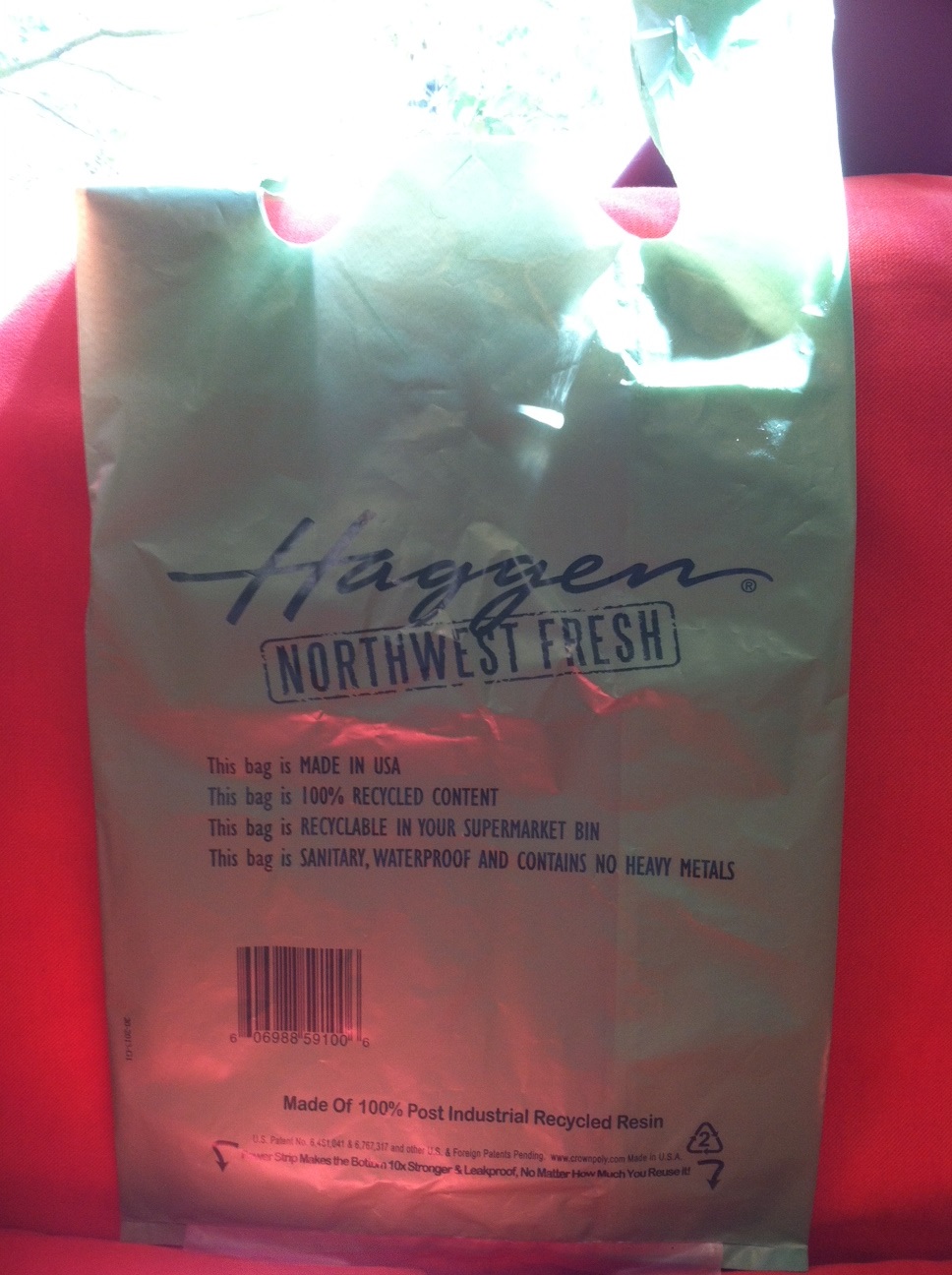After their ban in Seattle, plastic bags made a pretty quiet exit from Seattle grocery stores. But they may have some fight in them yet.
This week, Uwajimaya began offering shoppers – for a mere quarter – a green “reusable” plastic bag in case they don’t care for paper and forgot their cloth totes at home.
While the bags are clearly thicker than the ocean polluting ones we banished in Seattle, in many ways they look and feel like the bags of old; and at 25 cents, they aren’t free, but they aren’t exactly dear either.
Denise Moriguchi, marketing director for the grocer, says the company is releasing the bag on a trial basis, announcing on signs at check-outs that they are available – and that they were approved by Seattle Public Utilities.
If customers complain or don’t purchase the bags, Moriguchi says, Uwajimaya may decide to not sell the bags. But so far customers have been keen to the idea.
“It is really durable. I do think people prefer it to the paper bag in terms of durability,” she says. Customers also seem to enjoy that they can be folded up an put in a pocket; she says many male customers, in particular, don’t like carrying around the cloth bags.
Moriguchi says the bags were release after a store manager attended a meeting with the city, in which the bags were displayed as a legal option for stores to offer.
“They’re using a perfectly legal bag because it’s a bag that the ordinance allows,” says Dick Lilly, manager for waste prevention with the city. “The ordinance explicitly allows a thick plastic bag.”
Lilly says businesses like book sellers requested that thicker plastic bags be allowed so customers can keep their purchases dry in the rain. By definition, the minimum thickness of bags now is 2.25 mills. A mill is 1/1,000 of an inch. The typical plastic bag of old was about half that thick, he says.
Still, if grocery stores begin selling the bags in large volume, do we risk ending up back where we started with plastic bag pollution?
Lilly doesn’t seem concerned. Even at a quarter, the price will keep the number of bags in circulation in check – “far fewer compared to the hundreds of thousands there were.”
And, he says, “they do get re-used. People carry them around.”








